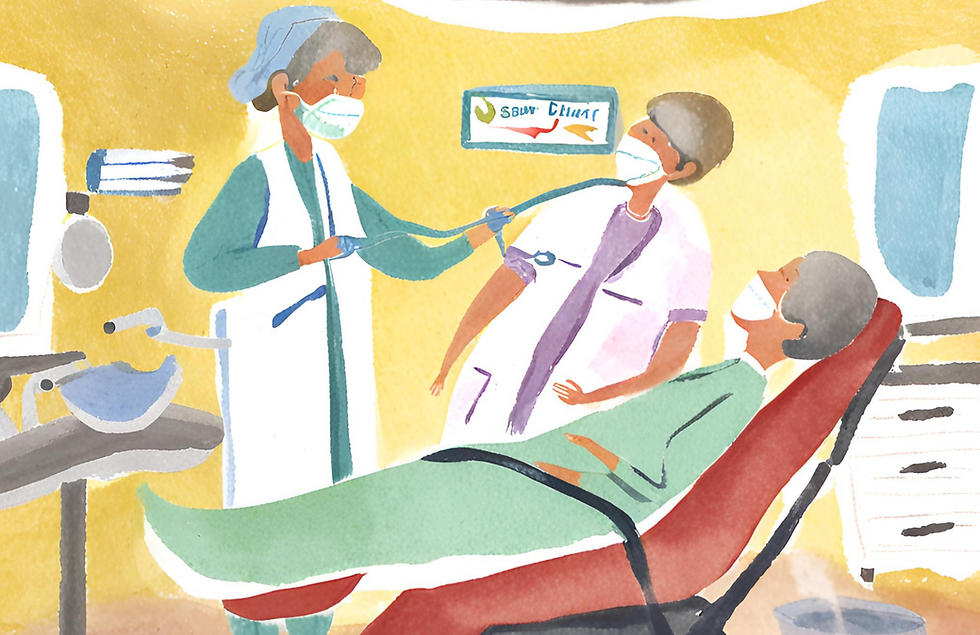Comprehensive Guide to Mouth Care for Senior Citizens: Enhancing Oral Health and Enjoying Flavourful Meals
- Bekta Health Team
- Jul 29, 2024
- 3 min read

Maintaining good oral hygiene is crucial for seniors as it significantly impacts overall health and quality of life. Dental issues in seniors can lead to difficulties in eating, speaking, and can affect self-esteem. This blog will provide a thorough guide to mouth care for senior citizens and include tips on enhancing the taste of food, making it the go-to resource in Ontario for senior oral health.
Why is Oral Health Vital for Seniors?
As we age, changes in our body and lifestyle can affect oral health. For seniors, common dental issues include dry mouth, gum disease, tooth decay, and tooth loss. These problems can lead to difficulties in eating and speaking, impacting nutrition and overall well-being.
Understanding the Importance of Oral Health in Seniors
Common Oral Health Issues in Seniors:
1. Dry Mouth (Xerostomia): Often caused by medications, dry mouth can lead to tooth decay and gum disease.
2. Gum Disease (Periodontitis): Plaque buildup can cause gum inflammation, leading to tooth loss if untreated.
3. Tooth Decay: Reduced saliva production and poor dental hygiene can increase the risk of cavities.
4. Tooth Loss: Can affect chewing and speaking, and impact nutrition.
Effective Mouth Care Tips for Seniors
Daily Oral Hygiene Practices:
1. Brushing: Brush twice daily with a soft-bristled toothbrush and fluoride toothpaste.
2. Flossing: Floss daily to remove plaque and food particles between teeth.
3. Mouth Rinsing: Use an antimicrobial mouthwash to reduce bacteria and plaque.
4. Hydration: Drink plenty of water to combat dry mouth and stimulate saliva production.
5. Regular Dental Checkups: Visit the dentist at least twice a year for cleanings and checkups.
Managing Dentures:
1. Daily Cleaning: Clean dentures daily with a denture brush and mild denture cleaner.
2. Proper Fitting: Ensure dentures fit well to avoid sores and discomfort.
3. Overnight Care: Remove dentures at night and soak them in a denture solution.
Enhancing the Taste of Food for Seniors
Why Do Seniors Experience Changes in Taste?
Aging, medication, and health conditions can affect taste buds, reducing the ability to enjoy food. Here are some tips to make food more enjoyable for seniors:
1. Enhance Flavours Naturally:
Use herbs and spices to add flavour without extra salt.
Incorporate citrus, vinegar, and other tangy ingredients to enhance taste.
2. Improve Texture:
Serve moist and tender foods to make chewing easier.
Puree or chop foods for those with chewing difficulties.
3. Temperature Matters:
Serve foods at the right temperature to enhance flavour.
Cold foods can help with dry mouth, while warm foods can be soothing.
4. Presentation:
Make meals visually appealing with colourful fruits and vegetables.
Use attractive plating to stimulate appetite.
Nutrition Tips for Seniors:
1. Balanced Diet: Ensure meals include a variety of nutrients from all food groups.
2. Frequent, Smaller Meals: Eating smaller, more frequent meals can help with appetite.
3. Hydration: Encourage drinking water and other hydrating beverages throughout the day.
Maintaining good oral health and enjoying flavourful, nutritious meals are essential for senior citizens' overall well-being. By following the mouth care tips and making simple adjustments to enhance the taste of food, seniors can improve their quality of life. For personalized care and professional advice, Bekta Healthcare is here to support you.
For more information on senior oral health, visit these resources:
Comments